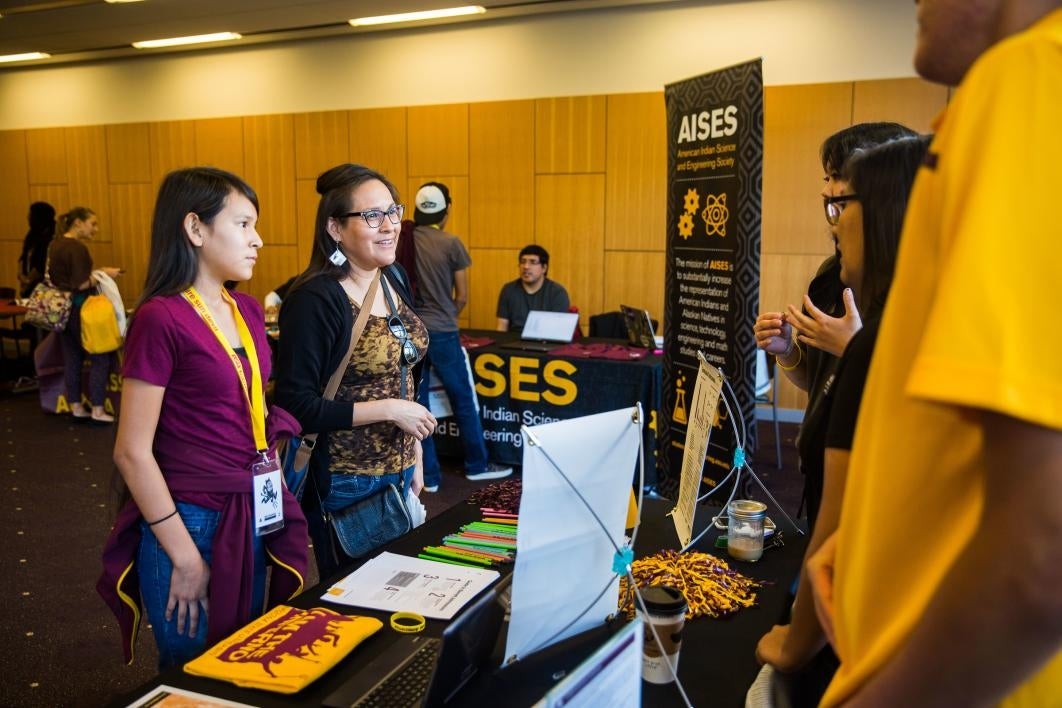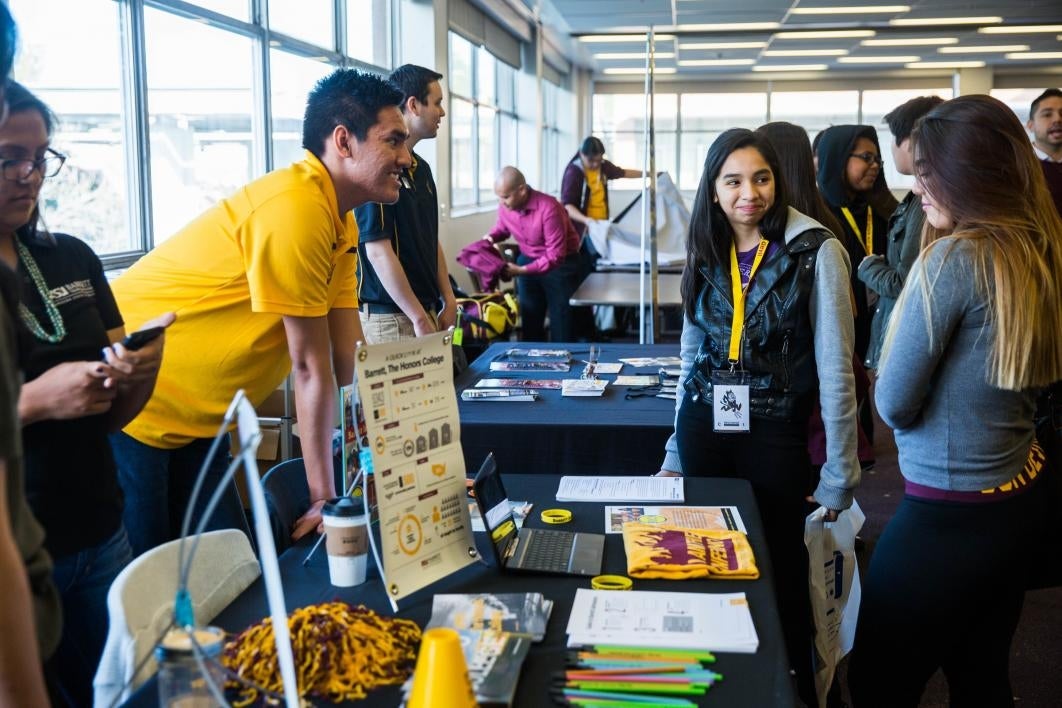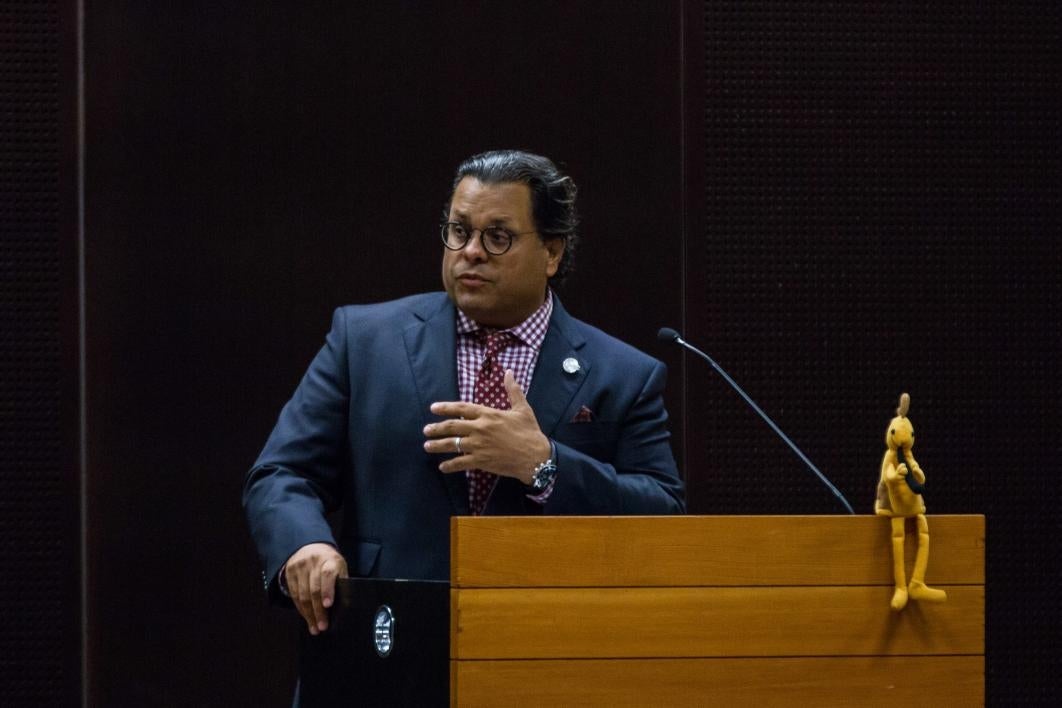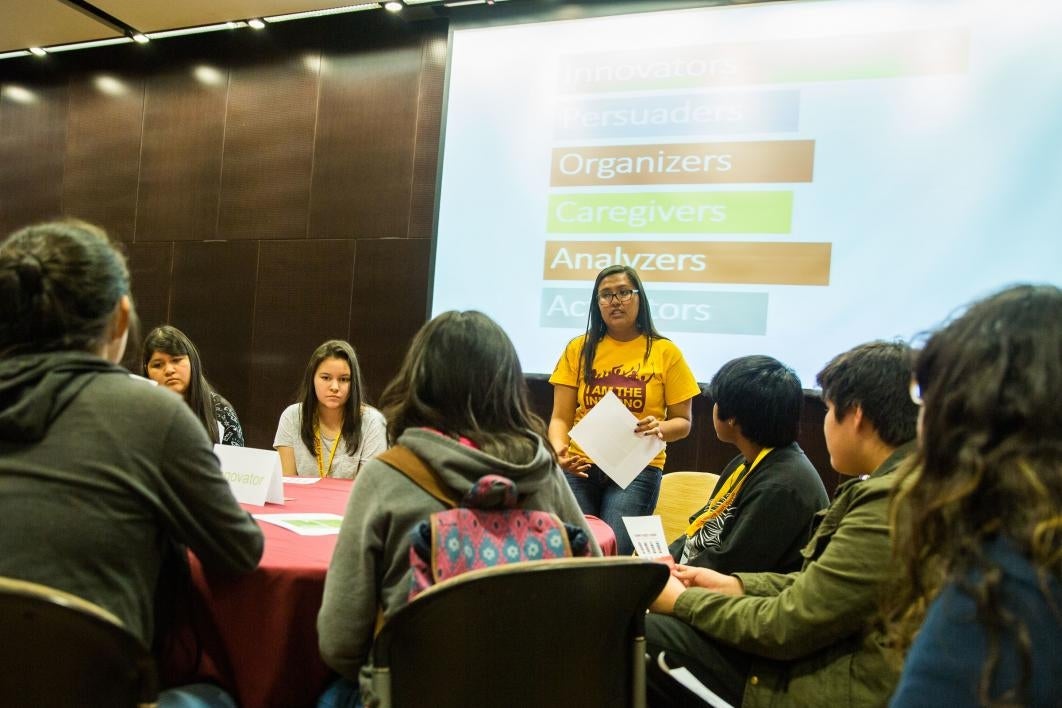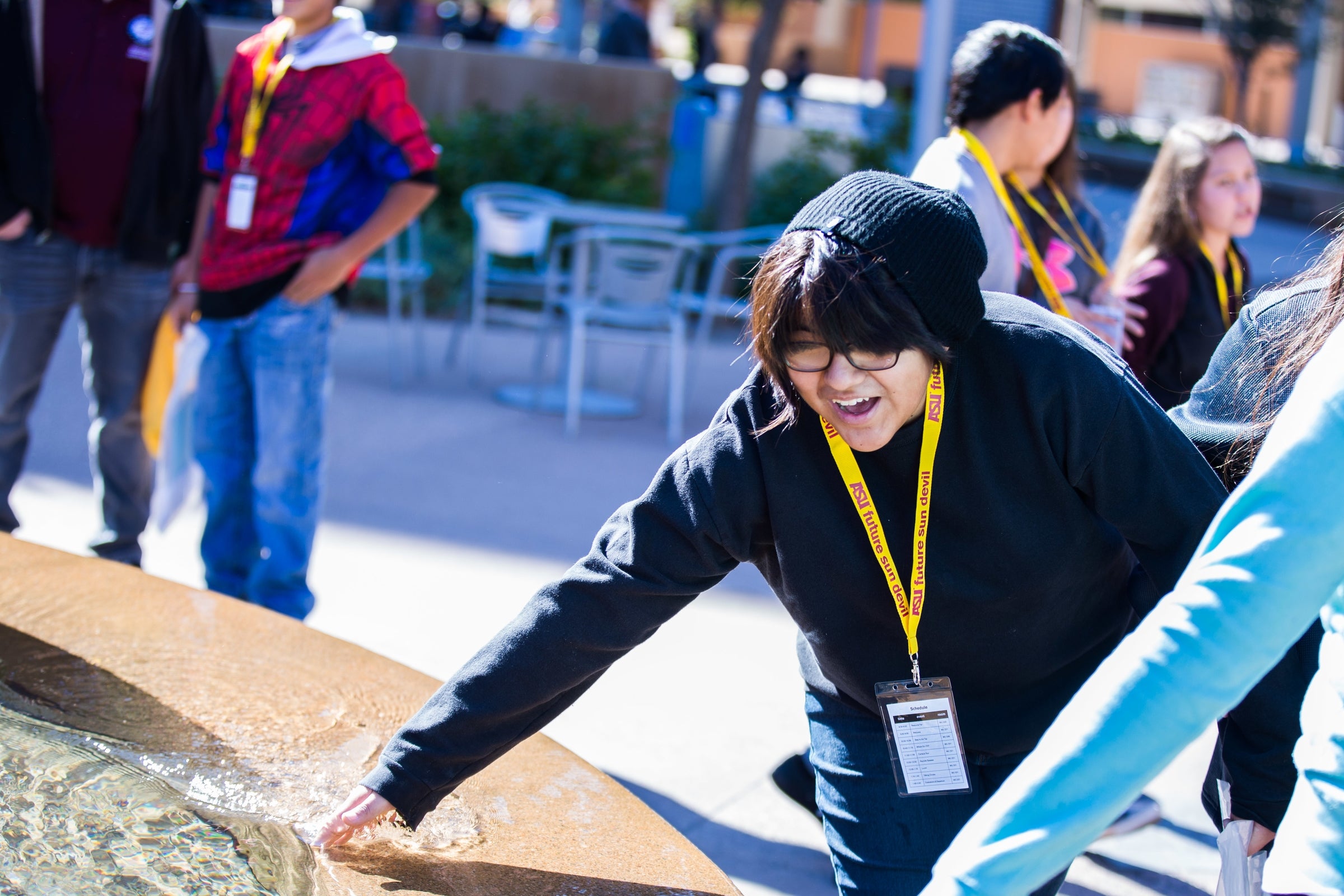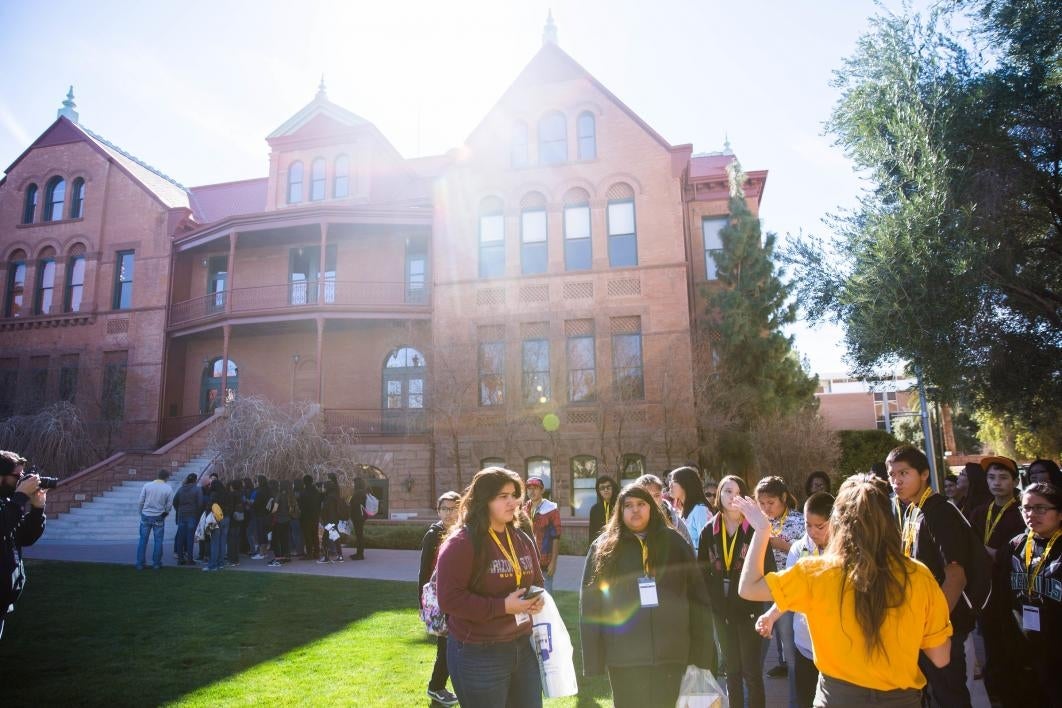Eight students in grades 7-12 sat in a circle, discussing how to prepare for college. While discussing what excited each student most about college, Kiana Montero, an 11th-grader in the White Mountain Apache Tribe, spoke up.
“The new people and opportunities,” Montero said confidently.
Montero is one of 300 American Indian students from across Arizona who participated in the RECHARGE conference Monday on Arizona State University’s Tempe campus. The daylong conference engaged students in a conversation about college readiness with topics ranging from financial aid to academic preparedness.
For Montero, the conference provided her with an opportunity to learn about the college process.
“My parents didn’t go to college, and I want to be the first in my family to graduate from college,” said Montero.
Programs such as the RECHARGE conference serve an important role empowering American Indian students to attend college. The conference provides resources about higher education to students who might not otherwise receive this information.
“Many of the students here would be first-generation college students,” said Michael Begaye, director of the American Indian Student Support Services at ASU. “They often need guidance to navigate the complicated maze of forms and applications for college, financial aid, scholarships, etc.”
Today, fewer than 1 percent of all college students in the United States are of American Indian descent; fewer than 13 percent of all American Indians earn a college degree.
Efforts to raise college enrollment among disadvantaged groups are central to ASU President Michael Crow’s goal of increasing the number of college graduates in Arizona. Increasing the number of college graduates also has significant economic benefits, yielding an additional $660,000 for the state economy per graduate.
Already, ASU is taking strides to increase American Indian enrollment with efforts geared toward helping students succeed in college. Through specialized programs — such as the SPIRIT orientation program, which helps American Indian students adjust to life in college — and unique peer mentoring opportunities, ASU strives to ensure that its American Indian students have access to resources that promote their academic and emotional well-being.
Through these efforts, ASU has an American Indian enrollment rate of 1.6 percent, a rate that is 70 percent higher than the national average.
For Begaye, he is excited that he can help educate a new generation of American Indian students like Montero, who wants to use her education to help her community in a health-care capacity.
“I strive for better things,” said Montero. “I want to do even more, and that’s why I want to be a pediatrician.”
More Sun Devil community
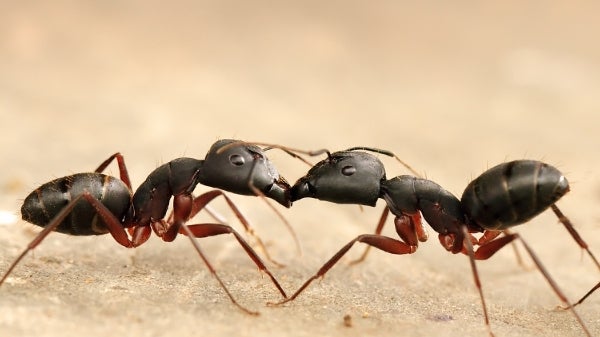
Army veteran dedicates PhD to exploring the social order of ant colonies
While Colin Lynch was enlisted as a medic in the National Guard, he had a pastime that was quite different from that of his peers: He also volunteered as a researcher in a social insect lab at the…
College of Health Solutions grad, soccer star hopes to make the big leagues
A staple lineup defender on the Sun Devil women’s soccer team, Lauren Kirberg is looking to join the National Women’s Soccer League (NWSL) after graduating from the College of Health Solutions…
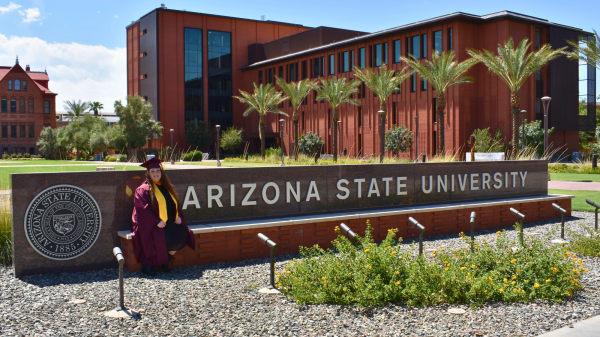
ASU grad finds her calling in advocating for people through clinical research
Rhiannon Elliott-McGaugh-Mask grew up hundreds of miles away from an ocean, but that wasn’t an issue when deciding her future career.“I wanted to go into marine biology, which is pretty common with a…

